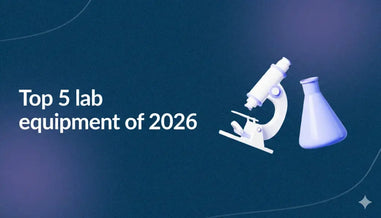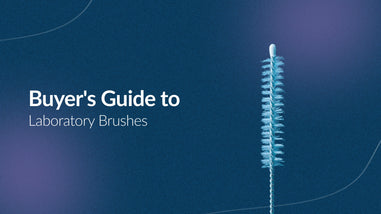- No products in the cart.
Cannabis is rapidly becoming a big business in California. According to the California Cannabis Portal, the state raked in $60.9 million in tax revenues on cannabis sales in just the first quarter of 2018. However, the industry is still suffering from growing pains stemming from the inability of cannabis growers and resalers to validate the quality of their products in keeping with state regulations. As of 2018, there were fewer than 60 testing laboratories in California which were registered with the state bureau of cannabis. This means that starting a cannabis testing laboratory in California is a compelling business opportunity which investors everywhere are clamoring to monetize.
Starting a cannabis testing laboratory is a daunting task, however. Before a laboratory can make revenues from validating the quality of cannabis products, it needs a lot of preparation to ensure that it fulfills the necessary legal and scientific requirements. Specifically, the two largest challenges for budding cannabis testing laboratories are working through the legal red tape required for licensing, and securing the right kind of laboratory equipment in the necessary quantities. While working with a local laboratory supply company can ease many of the obstacles to starting a cannabis testing group, there are a handful of other elements to be aware of regarding the legal requirements.
Accreditation, Authorization, and Licensing
Getting accredited, authorized, and licensed to test cannabis products is the first step in the laboratory startup process. To get accredited and licensed, laboratories need to fill out an application with the Bureau of Cannabis Control and submit evidence that the lab can credibly perform all of the required functions of a cannabis testing lab.
As far as the legally required functions for accreditation go, the state of California has several concerns when it comes to regulating cannabis testing laboratories. These concerns are articulated in the state’s legal standards for:
- Purity testing
- Potency testing
- Pesticide content testing (for flower-based products)
- Mold and other contaminant testing
- Health-related claims relating to the product
Critically, violating any of the state’s standards is liable to incur a fee: these fees range from $100 to $10,000 per violation. Thus, meeting each of these standards and avoiding fees requires different sets of business and scientific tactics. The majority of the licensing requirements are scientific in nature, meaning that laboratories will need to have the right testing resources in place before sending their application if they want to maximize their chances of becoming accredited.

Setting Up the Testing Suite
Each of the required state tests for cannabis products has a different focus in terms of the cannabis modalities and scientific techniques required for compliance. Purity testing refers to the state’s allowances for residual solvents or other manufacturing chemicals whose origin is not cannabis and whose inclusion in the final product is undesirable or harmful. Importantly, purity testing does not refer to the presence of chemicals like pesticides or heavy metals which are deleterious to human health—purity tests are only for chemicals that were used to process the cannabis product. While there are many ways to test the purity of different cannabis products, to be accredited a lab must credibly be able to test purity regardless of the cannabis modality in question. In effect, this means that laboratories must be ready to test cannabis flowers for “purity,” if only to indicate that there are no additional manufacturing chemicals in a natural product.
Similarly, laboratories need to be able to assess the potency of all modalities of cannabis based on their THC and cannabinoid content. With potency testing, the primary concern is to ensure that the actual concentration of psychoactive chemicals in the product is the same as what the label on the product specifies. Unlike purity testing, the standard of precision for potency testing varies depending on the modality of cannabis. In other words, cannabis prepared into edible tablets have more stringent potency testing guidelines than cannabis flower, which may not have a consistent potency from batch to batch, but they share the same low value for the acceptable quantity of impurities.
Independently of purity testing, cannabis testing laboratories must also demonstrate that they can reliably test for the presence of any of the state’s list of 66 pesticides which may contaminate cannabis products. Failure to detect even one or two of the pesticides in a sample of cannabis flower is grounds for a violation of licensure agreements—and as many as 20% of licensed cannabis testing labs had at least one violation on their record as of 2018. Aggressive testing with pesticide reference samples is probably a sound business decision to protect the lab from incurring violations.
Testing for mold and other harmful contaminants like heavy metals is perhaps the most important. Metals testing and mold testing have little in common in terms of the laboratory procedures required, but the state’s guidelines for both are the most aggressive of any—and the fines for violations are higher as well. Minimizing the cost of contaminant testing is significantly easier when working with the right supplier, however.
Scaling Operations
After getting licensed and accredited, the challenge for cannabis testing labs becomes a matter of maintaining their profit margin at the scale of demand. Maintaining a reliable supply chain for essential consumables is much easier when working with an experienced and capable laboratory goods supplier.
In this vein, the most successful cannabis testing laboratories have strong relationships with their local suppliers, who can negotiate the best prices for essential goods on their behalf while also ensuring that their inventories never run out. At present, there aren’t any suppliers which specialize in providing cannabis testing laboratories with the goods they need. But, there is a vendor which has a long and successful history of working with laboratories in up and coming industries to ensure that they can scale to meet growing demand.
For over 40 years, Lab Pro has been committed to providing equipment and reagents for companies which test consumer products in California and worldwide. Come visit the biggest Lab Supply showroom in California, or contact us online or at 888-452-2776.












































